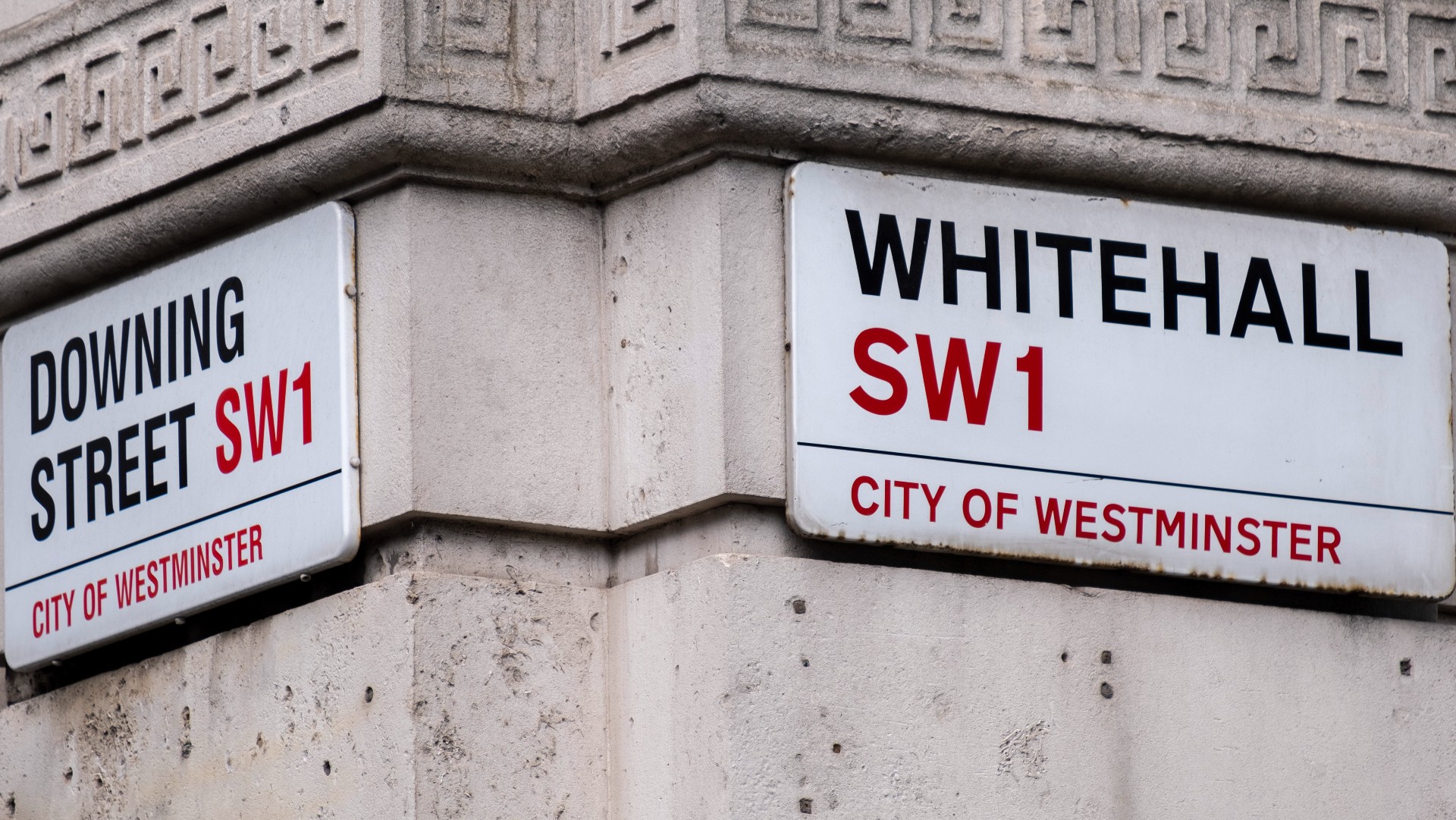Civil service neutrality: is it time for a more politicised Whitehall?
Radical plans to allow political appointees could be the direct result of Dominic Raab’s resignation

A free daily email with the biggest news stories of the day – and the best features from TheWeek.com
You are now subscribed
Your newsletter sign-up was successful
The government is considering radical plans to “politicise” the civil service in the wake of the resignation of deputy prime minister and justice secretary Dominic Raab over allegations of bullying.
Writing in The Observer, the government’s adviser on the civil service, Francis Maude, said that Raab’s resignation raised “important issues” on the relationship between ministers and the permanent Whitehall employees tasked with carrying out their policies, and the tension between maintaining impartiality and continuity.
It follows an explosive interview on Friday, in which an unrepentant Raab claimed he had been forced out by a “very small minority of very activist civil servants” who were effectively trying to block reforms they did not like.
The Week
Escape your echo chamber. Get the facts behind the news, plus analysis from multiple perspectives.

Sign up for The Week's Free Newsletters
From our morning news briefing to a weekly Good News Newsletter, get the best of The Week delivered directly to your inbox.
From our morning news briefing to a weekly Good News Newsletter, get the best of The Week delivered directly to your inbox.
‘More robust and less mealy mouthed’
Maude, a Conservative peer and former Cabinet Office minister, has called for “a much more robust culture, with less groupthink, more rugged disagreement, and the confidence to both offer challenge and to accept it” within Whitehall.
He is expected to report to the prime minister shortly and, crucially, has said “we also need to be more robust and less mealy mouthed about ‘politicisation’.”
Claiming “other systems deal with this better”, he highlighted how permanent civil servants in France have overt political affiliations, while permanent civil servants in ministers’ private offices in Australia are released from the obligations of political impartiality and can even take part in party political activity.
The Observer said Maude’s ideas will cause “deep alarm across Whitehall”, especially coming in the wake of the resignation of Raab on Friday after accusations were upheld that he had bullied officials whom he believed had underperformed.
A free daily email with the biggest news stories of the day – and the best features from TheWeek.com
With many in the Tory party still smarting over the defection of senior civil servant Sue Gray to Labour earlier this year, “the Raab case has highlighted tensions between the need for Conservative ministers to drive policies forward to deliver on their political objectives, and the independence of the civil servants who serve them”, said the paper.
John Oxley for UnHerd said ministers “increasingly talk about ‘the Blob’, and the perception that politically motivated intransigence is used to frustrate their policies”. So the fact “that a minister was ousted through civil servants’ grievances will only add succour to this”.
‘Genuine risk of losing years of knowledge’
Theresa May’s former chief of staff, Nick Timothy, in The Daily Telegraph set out the need to “overhaul our creaking civil service”.
He suggested the civil service should be reduced in size by half, while pay should be doubled, and ministers should be able to appoint the officials who do the work for which they are accountable. “This would improve the retention of the best officials, and help to recruit more experts to serve for chunks of their career,” he claimed. “Alignment between ministers and officials would mean better, swifter delivery.”
It follows proposals by former cabinet minister Liam Fox, also in The Telegraph, for a “hybrid” approach towards political appointees in the civil service that would improve skills, turnover and ultimately impartiality.
Yet this approach carries a “genuine risk”, said Doug McWilliams, an economist who has worked in Whitehall for decades, on Reaction. He argued that while it “might seem attractive to a Tory minister, when faced with what appears to be obstruction, simply to get rid of the top of the civil service and replace it with politicians… would lose years of knowledge.”
He added: “The system only works (in a ramshackle way) in the US because of the importance of state and local governments where apprentice politicians/civil servants can cut their teeth,” he concluded. “In the UK’s largely unitary system, placing those with no administrative experience in charge of departments would make maladministration endemic.”
-
 What is the endgame in the DHS shutdown?
What is the endgame in the DHS shutdown?Today’s Big Question Democrats want to rein in ICE’s immigration crackdown
-
 ‘Poor time management isn’t just an inconvenience’
‘Poor time management isn’t just an inconvenience’Instant Opinion Opinion, comment and editorials of the day
-
 Bad Bunny’s Super Bowl: A win for unity
Bad Bunny’s Super Bowl: A win for unityFeature The global superstar's halftime show was a celebration for everyone to enjoy
-
 The Mandelson files: Labour Svengali’s parting gift to Starmer
The Mandelson files: Labour Svengali’s parting gift to StarmerThe Explainer Texts and emails about Mandelson’s appointment as US ambassador could fuel biggest political scandal ‘for a generation’
-
 Three consequences from the Jenrick defection
Three consequences from the Jenrick defectionThe Explainer Both Kemi Badenoch and Nigel Farage may claim victory, but Jenrick’s move has ‘all-but ended the chances of any deal to unite the British right’
-
 The MAGA civil war takes center stage at the Turning Point USA conference
The MAGA civil war takes center stage at the Turning Point USA conferenceIN THE SPOTLIGHT ‘Americafest 2025’ was a who’s who of right-wing heavyweights eager to settle scores and lay claim to the future of MAGA
-
 Is a Reform-Tory pact becoming more likely?
Is a Reform-Tory pact becoming more likely?Today’s Big Question Nigel Farage’s party is ahead in the polls but still falls well short of a Commons majority, while Conservatives are still losing MPs to Reform
-
 What does the fall in net migration mean for the UK?
What does the fall in net migration mean for the UK?Today’s Big Question With Labour and the Tories trying to ‘claim credit’ for lower figures, the ‘underlying picture is far less clear-cut’
-
 Five takeaways from Plaid Cymru’s historic Caerphilly by-election win
Five takeaways from Plaid Cymru’s historic Caerphilly by-election winThe Explainer The ‘big beasts’ were ‘humbled’ but there was disappointment for second-placed Reform too
-
 The new age of book banning
The new age of book banningThe Explainer How America’s culture wars collided with parents and legislators who want to keep their kids away from ‘dangerous’ ideas
-
 Five policies from the Tory conference
Five policies from the Tory conferenceIn Depth Party leader Kemi Badenoch has laid out the Conservative plan for a potential future government